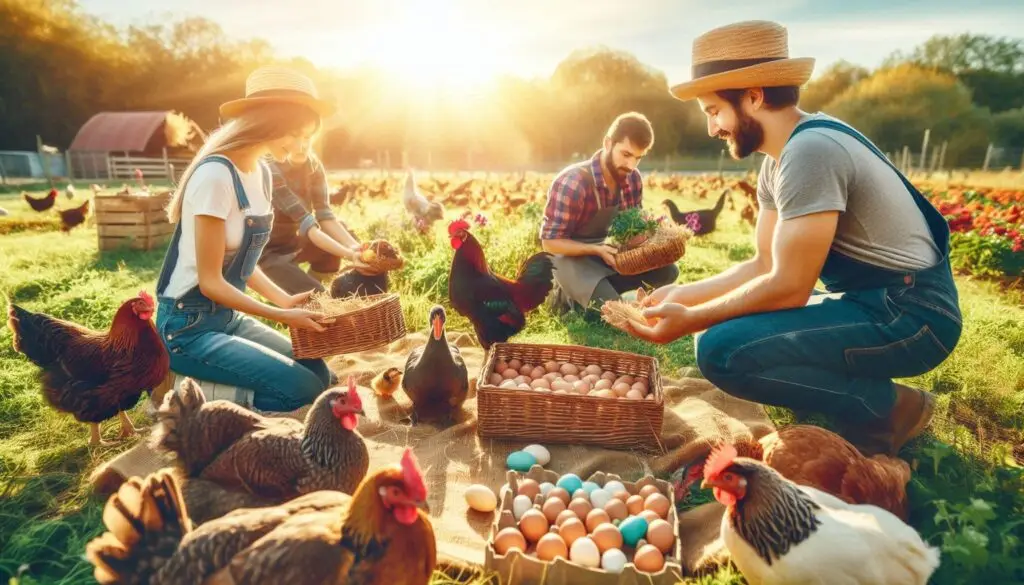Energy Requirements for Livestock Production

Energy Requirements for Maintenance in Farm Animals
Energy requirements for maintenance are crucial for sustaining the basic physiological functions and overall well-being of farm animals. These requirements ensure that animals maintain their body weight and health without undergoing growth, reproduction, or lactation. Understanding these energy needs is essential for effective livestock management and nutrition.
Energy Requirements by Species
- Cattle: Dairy cows typically require between 80 to 90 kcal of metabolizable energy (ME) per kilogram of body weight per day for maintenance.
- Sheep and Goats: Mature sheep and goats have maintenance energy needs ranging from 60 to 70 kcal of ME per kilogram of body weight per day.
- Pigs: Both growing and mature pigs require about 80 to 100 kcal of ME per kilogram of body weight daily for maintenance.
- Poultry: Maintenance energy requirements for poultry can vary significantly based on age, breed, and environmental conditions, generally falling between 100 to 120 kcal of ME per kilogram of body weight per day.
Methods to Determine Maintenance Energy Requirements
Several methods can be employed to accurately assess the maintenance energy needs of farm animals:
- Calorimetry: This method involves placing an animal in a calorimeter to measure heat production while the animal is at rest and in a post-absorptive state. This provides a direct measurement of the basal metabolic rate (BMR) or fasting metabolic rate (FMR), representing the minimum energy expenditure for basic functions.
- Feeding Trials: Conducting trials with mature, non-producing animals fed at maintenance levels allows for monitoring of feed intake and body weight changes. By observing when animals reach stable body weight, maintenance energy requirements can be estimated.
- Regression Analysis: This involves analyzing feed intake at various production levels to determine the energy required for maintenance when no production occurs.
- Slaughter Experiments: By analyzing the body composition of animals before and after a maintenance period, researchers can estimate the energy expended for maintenance.
Energy Requirements for Growth, Reproduction, and Lactation
The energy requirements for growth, reproduction, and lactation vary significantly among species:
- Cattle: Growing cattle require 90 to 120 kcal of ME per kilogram of body weight per day. Pregnant cows, particularly in the last trimester, may need 10,000 to 15,000 kcal of ME daily, while lactating cows can require up to 25,000 kcal of ME per day.
- Sheep and Goats: Growing lambs and kids need about 100 to 130 kcal of ME per kilogram of body weight daily. Pregnant ewes in late gestation require about 400 to 500 kcal of ME per day, while lactating ewes may need 700 to 900 kcal of ME daily.
- Pigs: Young pigs may require 130 to 160 kcal of ME per kilogram of body weight for growth. Pregnant sows need about 10,000 to 15,000 kcal of ME during the last trimester, while lactating sows may require 25,000 to 35,000 kcal of ME per day.
- Poultry: Broilers have high energy requirements for growth, needing 120 to 140 kcal of ME per kilogram of body weight daily during their growing phase.
Conclusion
Understanding the energy requirements for maintenance in farm animals is essential for optimizing their health and productivity. By accurately determining these needs through various methods, farmers can ensure that their livestock receive adequate nutrition, leading to improved overall well-being and efficiency in production. Proper management of energy intake not only supports maintenance but also enhances growth, reproduction, and lactation, contributing to a sustainable agricultural system.
Also refer these pearls of Vets Wisdom:
https://youtu.be/_V9FTt6mQVc?feature=shared






Responses